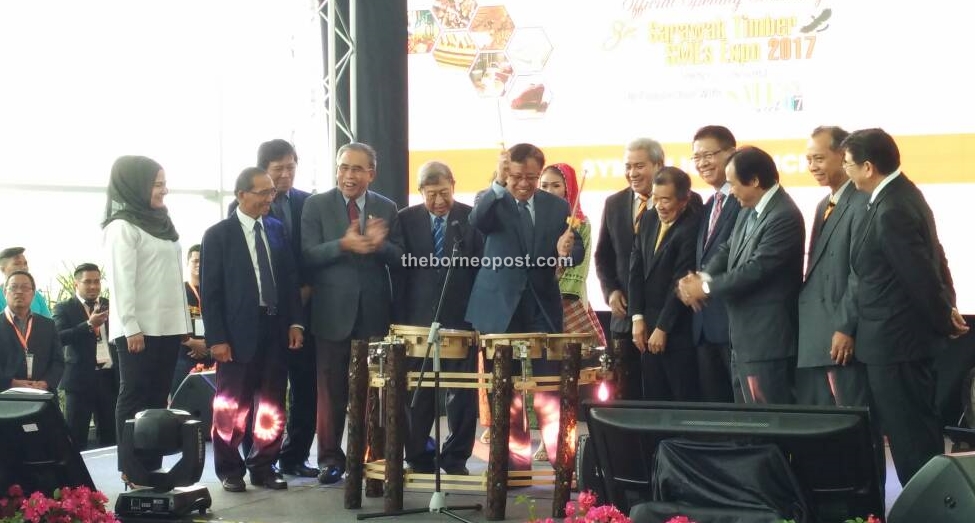
Abang Johari sounds bamboo drums to officially open the expo.
KUCHING: Sarawak timber industry players have been urged to pursue forest replanting plans aggressively to ensure sustainability of timber resources to produce sufficient industrial timber for downstream activities, especially furniture-making.
Chief Minister Datuk Amar Abang Johari Tun Openg stressed that strengthening the planted forest policy will eventually reduce the harvesting pressure on natural or protected forests.
“It is also important that the quality of planted forests be given special attention through research and development (R&D) and the best management practices,” he told a press conference today.
Abang Johari highlighted this after officially opening the 3rd Sarawak Timber and SMEs Expo 2017 at Borneo Convention Centre Kuching (BCCK) here.
The Expo was jointly organised by the Sarawak Timber Industry Development Corporation (STIDC) and the Industrial and Entrepreneur Development Ministry in conjunction with the state-level SME Week 2017 celebration.
Themed ‘Timber and Beyond’ this year, the Expo recorded a 48 per cent increase in participation compared to 2015, with 280 registered exhibitors taking a total of 494 booths.
“The private sector involved in the timber industry needs to collaborate and emphasise R&D initiatives to come up with innovative and high value added products to fulfill the needs and the position of Sarawak in the market,” he said.
Sarawak, he elaborated, has the potential to be Malaysia’s top contributor of furniture for export due its abundant natural resources.
“However, Sarawak is not the largest producer in Malaysia as Johor is still in the lead despite Sarawak being rich in timber resources,” he added.
Even over 30 years, Abang Johari pointed out there were no indication of the private sector taking replanting of forests and R&D seriously.
“What has been done by the private sector is unsatisfactory. As such, my administration will place emphasis on not issuing any more timber licences, encourage aggressive replanting of indigenous trees and enhance R&D to ensure sustainability,” he said.
Recognising that the timber industry will continue to play a significant role in Sarawak’s economic growth, Abang Johari hoped these strategies will help Sarawak achieved its global position by 2030.
